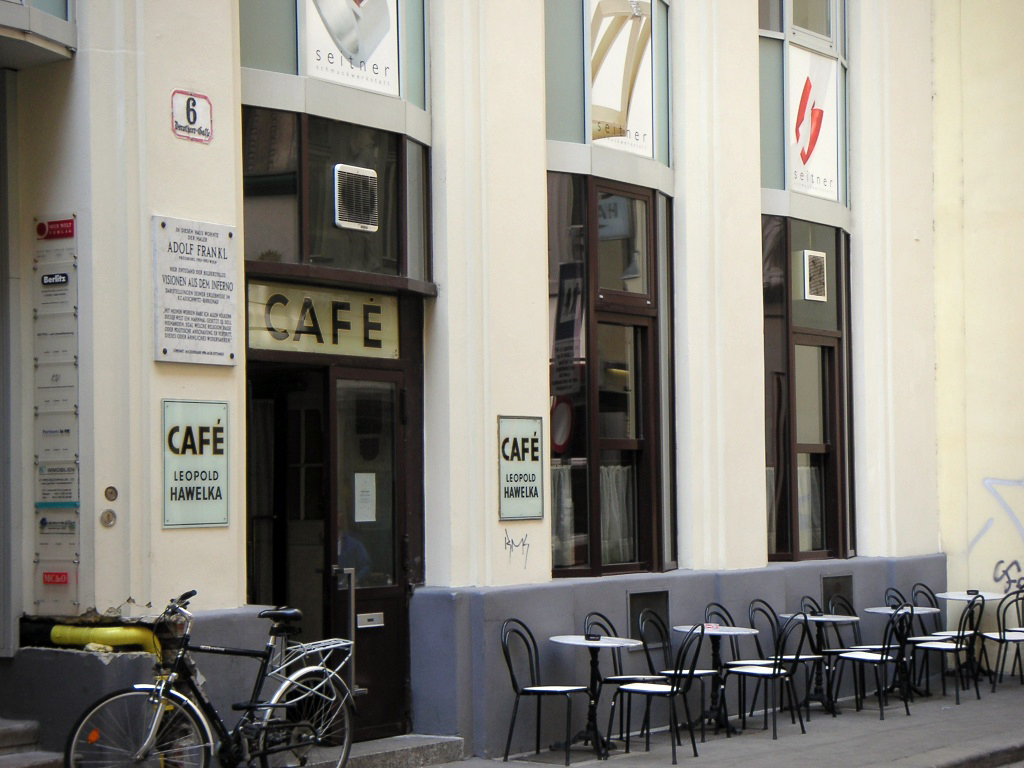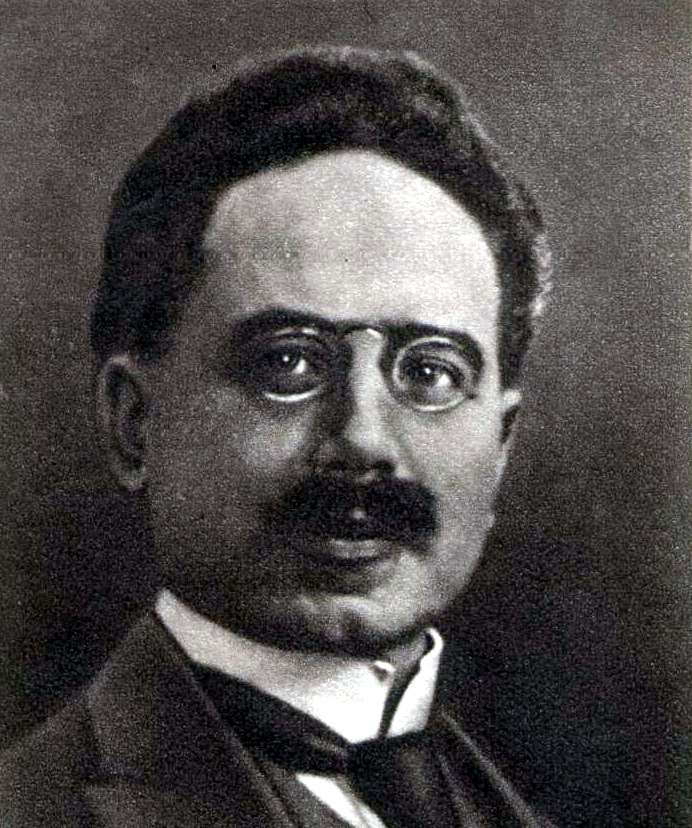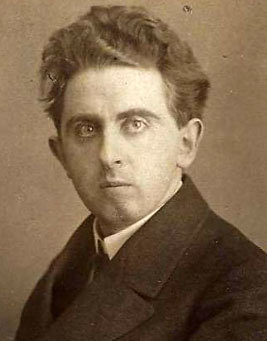|
Hede Massing
Hede Tune Massing, née "Hedwig Tune" (also "Hede Eisler," "Hede Gumperz," and "Redhead") (6 January 1900 – 8 March 1981), was an Austrian actress in Vienna and Berlin, communist, and Soviet intelligence operative in Europe and the United States during the 1930s and 1940s. After World War II, she defected from the Soviet underground. She came to prominence by testifying in the second case of Alger Hiss in 1949; later, she published accounts about the underground. Life Vienna Massing was born in 1900 to a Polish father and Austrian mother in Vienna. Her parents' unhappy marriage (caused in large part by her father's constant philandering) alienated her from her family. She had a brother, Walter, seven years younger, and sister, Elli, nine years younger. After finishing high school, she apprenticed unhappily and unsuccessfully in a millinery shop. Attendance of summer public lectures by Karl Kraus rekindled her interest in literature. She applied for and received a schol ... [...More Info...] [...Related Items...] OR: [Wikipedia] [Google] [Baidu] |
Vienna
en, Viennese , iso_code = AT-9 , registration_plate = W , postal_code_type = Postal code , postal_code = , timezone = CET , utc_offset = +1 , timezone_DST = CEST , utc_offset_DST = +2 , blank_name = Vehicle registration , blank_info = W , blank1_name = GDP , blank1_info = € 96.5 billion (2020) , blank2_name = GDP per capita , blank2_info = € 50,400 (2020) , blank_name_sec1 = HDI (2019) , blank_info_sec1 = 0.947 · 1st of 9 , blank3_name = Seats in the Federal Council , blank3_info = , blank_name_sec2 = GeoTLD , blank_info_sec2 = .wien , website = , footnotes = , image_blank_emblem = Wien logo.svg , blank_emblem_size = Vienna ( ; german: Wien ; ba ... [...More Info...] [...Related Items...] OR: [Wikipedia] [Google] [Baidu] |
Café Hawelka
Café Hawelka () is a traditional Viennese café located at Dorotheergasse 6 in the Innere Stadt, the first district of Vienna, Austria. History The Café Hawelka was opened by Leopold Hawelka in 1939. Hawelka had previously operated the Kaffee Alt Wien on Bäckerstraße since 1936 and together with his wife Josefine took over the Café Ludwig in the Dorotheergasse in May 1939. This spot was originally the location of the "Chatham Bar" opened in 1906. For two decades in recent past it was wrongly believed that the original venue was called "Je t'aime-Bar". After the outbreak of World War II, the Hawelka had to be closed, and in Fall 1945 it was reopened in the still largely intact building. After the end of the period of occupation after 1955, the café quickly became a meeting point for writers and critics like Heimito von Doderer, Albert Paris Gütersloh, Hilde Spiel, Friedrich Torberg and Hans Weigel. After the closing of the Café Herrenhof in 1961, even more artists gath ... [...More Info...] [...Related Items...] OR: [Wikipedia] [Google] [Baidu] |
Rote Fahne
''Die Rote Fahne'' (, ''The Red Flag'') was a German newspaper originally founded in 1876 by Socialist Worker's party leader Wilhelm Hasselmann, and which has been since published on and off, at times underground, by German Socialists and Communists. Karl Liebknecht and Rosa Luxemburg famously published it in 1918 as organ of the Spartacus League. Following the deaths of Liebknecht and Luxemburg during the chancellorship of the Social Democratic Party of Germany's Friedrich Ebert, the newspaper was published, with interruptions, by the Communist Party of Germany. Proscribed by the National Socialist Worker's Party government of Adolf Hitler after 1933, publication continued illegally, underground. History 1876 Wilhelm Hasselmann of the Socialist Workers' Party of Germany and member of the German Reichstag founded a short-lived, weekly newspaper called ''Die rote Fahne''. 1918–1933 Using the newspaper's subtitle as indicator of its political allegiance, ''Die Rote Fahne'' wa ... [...More Info...] [...Related Items...] OR: [Wikipedia] [Google] [Baidu] |
Editor
Editing is the process of selecting and preparing written, photographic, visual, audible, or cinematic material used by a person or an entity to convey a message or information. The editing process can involve correction, condensation, organisation, and many other modifications performed with an intention of producing a correct, consistent, accurate and complete piece of work. The editing process often begins with the author's idea for the work itself, continuing as a collaboration between the author and the editor as the work is created. Editing can involve creative skills, human relations and a precise set of methods. There are various editorial positions in publishing. Typically, one finds editorial assistants reporting to the senior-level editorial staff and directors who report to senior executive editors. Senior executive editors are responsible for developing a product for its final release. The smaller the publication, the more these roles overlap. The top editor ... [...More Info...] [...Related Items...] OR: [Wikipedia] [Google] [Baidu] |
Vera Figner
Vera Nikolayevna Figner Filippova (Russian: Ве́ра Никола́евна Фи́гнер Фили́ппова; 7 July [Old Style and New Style dates, O.S. 25 June] 1852 – 25 June 1942) was a prominent Russian revolutionary political activist. Born in Kazan Governorate, Russian Empire, into a noble family of Germans, German and Russians, Russian descent, Figner was a leader of the clandestine Narodnaya Volya (organization), Narodnaya Volya (People's Will) group, which advocated the use of terror to achieve a revolutionary overthrow of the government, Figner was a participant in planning the successful Assassination of Alexander II of Russia in 1881. Figner was later arrested and spent 20 months in solitary confinement prior to trial, at which she was sentenced to death. The sentence was subsequently commuted and Figner was imprisoned in the Shlisselburg Fortress for 20 years before being sent into internal exile. Figner gained international fame in large part because of th ... [...More Info...] [...Related Items...] OR: [Wikipedia] [Google] [Baidu] |
German Communist Party
The German Communist Party (german: Deutsche Kommunistische Partei, ) is a communist party in Germany. The DKP supports left positions and was an observer member of the European Left. At the end of February 2016 it left the European party. History The DKP considered itself a reconstitution of the Communist Party of Germany (KPD), which had been banned by the Federal Constitutional Court in 1956 for its aggressively militant opposition to the West German constitution. The new party was formed in 1969 by former KPD functionaries in close cooperation with East Germany's ruling party, the Socialist Unity Party (SED), from which the DKP received both political directives and – through covert transfers – most of its funds. The foundation was preceded by talks between former KPD functionaries and Gustav Heinemann, the West German minister of justice, who explained to them that while a refounding of a banned party was not legally possible, Communists were free to form an entirely ... [...More Info...] [...Related Items...] OR: [Wikipedia] [Google] [Baidu] |
Die Rote Fahne
''Die Rote Fahne'' (, ''The Red Flag'') was a German newspaper originally founded in 1876 by Socialist Worker's party leader Wilhelm Hasselmann, and which has been since published on and off, at times underground, by German Socialists and Communists. Karl Liebknecht and Rosa Luxemburg famously published it in 1918 as organ of the Spartacus League. Following the deaths of Liebknecht and Luxemburg during the chancellorship of the Social Democratic Party of Germany's Friedrich Ebert, the newspaper was published, with interruptions, by the Communist Party of Germany. Proscribed by the National Socialist Worker's Party government of Adolf Hitler after 1933, publication continued illegally, underground. History 1876 Wilhelm Hasselmann of the Socialist Workers' Party of Germany and member of the German Reichstag founded a short-lived, weekly newspaper called ''Die rote Fahne''. 1918–1933 Using the newspaper's subtitle as indicator of its political allegiance, ''Die Rote Fahne'' wa ... [...More Info...] [...Related Items...] OR: [Wikipedia] [Google] [Baidu] |
Civil Marriage
A civil marriage is a marriage performed, recorded, and recognized by a government official. Such a marriage may be performed by a religion, religious body and recognized by the state, or it may be entirely secular. History Every country maintaining a Civil registry, population registry of its residents keeps track of marital status, and all UN Member countries except Iran, Somalia, South Sudan, Sudan, and Tonga have signed or ratified either the United Nations Convention on Consent to Marriage, Minimum Age for Marriage, and Registration of Marriages (1962) or the United Nations Convention on the Elimination of All Forms of Discrimination against Women (1979) which carry a responsibility to register marriages. Most countries define the conditions of civil marriage separately from religious requirements. Certain countries, such as Israel, allow couples to register only on the condition that they have first been married in a religious ceremony recognized by the state, or were marrie ... [...More Info...] [...Related Items...] OR: [Wikipedia] [Google] [Baidu] |
Party Marriage
A party is a gathering of people who have been invited by a host for the purposes of socializing, conversation, recreation, or as part of a festival or other commemoration or celebration of a special occasion. A party will often feature food and beverages, and often conversation, music, dancing, or other forms of entertainment. Some parties are held in honor of a specific person, day, or event, such as a birthday party, a Super Bowl party, or a St. Patrick’s Day party. Parties of this kind are often called celebrations. A party is not necessarily a private occasion. Public parties are sometimes held in restaurants, pubs, beer gardens, nightclubs, or bars, and people attending such parties may be charged an admission fee by the host. Large parties in public streets may celebrate events such as Mardi Gras or the signing of a peace treaty ending a long war. Types Balls Banquets Birthday party A birthday party is a celebration of the anniversary of the birth o ... [...More Info...] [...Related Items...] OR: [Wikipedia] [Google] [Baidu] |
Communist
Communism (from Latin la, communis, lit=common, universal, label=none) is a far-left sociopolitical, philosophical, and economic ideology and current within the socialist movement whose goal is the establishment of a communist society, a socioeconomic order centered around common ownership of the means of production, distribution, and exchange which allocates products to everyone in the society.: "One widespread distinction was that socialism socialised production only while communism socialised production and consumption." Communist society also involves the absence of private property, social classes, money, and the state. Communists often seek a voluntary state of self-governance, but disagree on the means to this end. This reflects a distinction between a more libertarian approach of communization, revolutionary spontaneity, and workers' self-management, and a more vanguardist or communist party-driven approach through the development of a constitutional socialist state ... [...More Info...] [...Related Items...] OR: [Wikipedia] [Google] [Baidu] |
Albert Ehrenstein
Albert Ehrenstein (23 December 1886 – 8 April 1950) was an Austrian-born German Expressionist poet. His poetry exemplifies rejection of bourgeois values and fascination with the Orient, particularly with China. He spent most of his life in Berlin, but also travelled widely across Europe, Africa, and the Far East. In 1930, he travelled to Palestine, and published his impressions in a series of articles. Shortly before the Nazi take-over, Ehrenstein moved to Switzerland, and in 1941 to New York City, where he died. Early life Ehrenstein was born to Jewish-Hungarian parents in Ottakring, Vienna. His father was a cashier at a brewery and the family was poor. His younger brother was the poet Carl Ehrenstein (1892-1971). His mother was able to enroll him in high school, where he was harassed with anti-semitic bullying. From 1905 to 1910 he studied history and philosophy in Vienna and graduated in 1910 with a doctorate (with a thesis on Hungary in 1790). He had already decided on a ... [...More Info...] [...Related Items...] OR: [Wikipedia] [Google] [Baidu] |







